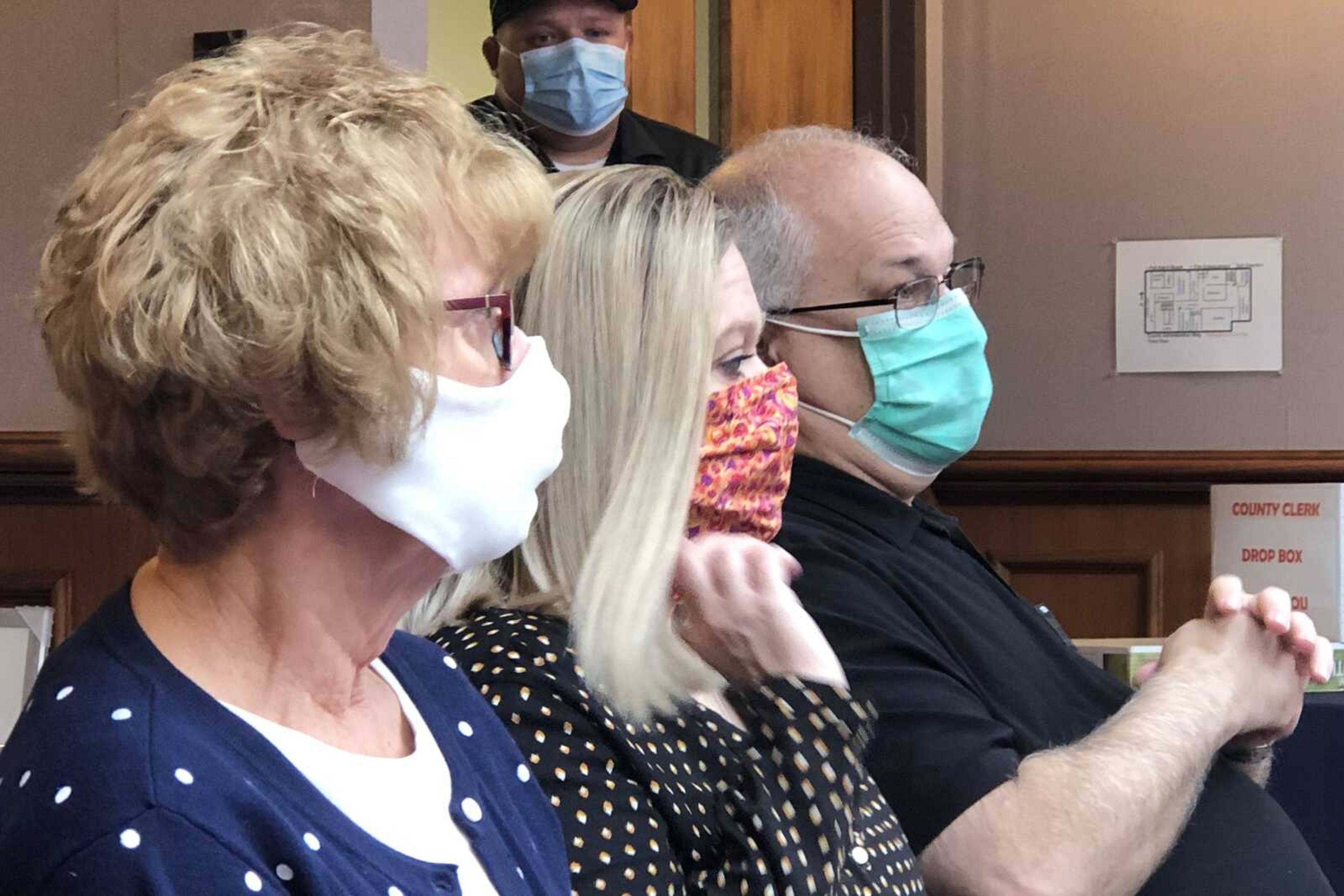Commissioners approve coronavirus study funding
A study to determine the prevalence of COVID-19 in Cape Girardeau County could begin as soon as next week. The County Commission on Monday unanimously approved a proposal to fund serological coronavirus testing on about 2% of the county’s population. Based on that sampling, health authorities will be able to project how many county residents have had coronavirus — including some who didn’t know they had it...
A study to determine the prevalence of COVID-19 in Cape Girardeau County could begin as soon as next week.
The County Commission on Monday unanimously approved a proposal to fund serological coronavirus testing on about 2% of the county’s population. Based on that sampling, health authorities will be able to project how many county residents have had coronavirus — including some who didn’t know they had it.
Serological blood testing can identify antibodies present in people who have contracted the new coronavirus.
“We’ve been talking about antibody testing now for weeks,” said Dr. John Russell, medical director of the Cape Girardeau County Public Health Center, which will oversee the testing.
Speaking before the county commissioners Monday morning, Russell said antibody testing differs from “nasal swab” molecular testing because that test is only used to identify those who have an active infection, unlike the serological antibody test that is used to identify those who have previously been infected and have recovered (or had the virus and didn’t know it).
“Antibody testing allows us to figure out what the prevalence of the disease is in a population versus the incidence of the disease,” Russell told the commissioners. Armed with this information, government officials and health care providers will be in a better position to respond to the COVID-19 pandemic in the months to come.
“We have the opportunity to get really worthwhile information to help guide policy decisions and policymakers as they move forward,” Russell said.
The antibody study will require testing approximately 1,700 county residents representing various demographic groups based on factors including age, gender, race and location within the county. Testing could begin as soon as next week and would be followed up in two or three months with a second round of tests of those same test subjects.
“This will be a big undertaking,” Russell said. “We’ll need the public’s help and it will be all hands on deck for a little bit.”
Testing, he said, could begin by early next week.
“Ideally, we’ll probably spend most of this week hammering out details of the process and lining up logistics and then we’ll roll out testing a week from today,” Russell said. “By the end of next week, we’ll have 1,700 samples.”
Tests will be locally processed at Southeast Hospital, which recently added serological testing capabilities. According to Southeast representatives at the commission meeting, the hospital lab can process as many as 100 tests an hour.
In addition to determining the prevalence of COVID-19 in the county, Russell said the study will help identify infection sources, including other family members and places of employment.
“That’s an incredibly important distinction when we’re talking about the reopening process,” Russell said. “Hopefully, in two-and-a-half week’s time we’ll have some answers.”
Cost of the testing, which could exceed $500,000, will be covered through the federal CARES (Coronavirus Aid, Relief, and Economic Security) Act. Cape Girardeau County expects to receive more than $9.2 million of CARES funds by Wednesday. There will be no cost to study participants.
“We haven’t got the money yet,” said Presiding Commissioner Clint Tracy, “but I think we can approve something pending receipt of the funding.”
Additional testing, Russell said, will undoubtedly lead to additional cases.
“I think it’s important for everybody to understand that as we increase testing of any kind (molecular or serological), we’re going to see increases in case counts,” he said. “That doesn’t necessarily mean the disease is worse in the community, it only means that we know about it. If you don’t want to find a fever, don’t take a temperature and if you don’t want to find COVID-19, don’t test anybody.”
Connect with the Southeast Missourian Newsroom:
For corrections to this story or other insights for the editor, click here. To submit a letter to the editor, click here. To learn about the Southeast Missourian’s AI Policy, click here.









